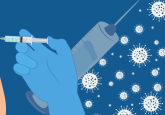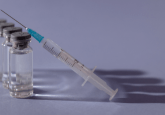How the media influences vaccine behavior

When vaccine stories hit the headlines, people turn to the internet—with potentially harmful consequences.

Vaccines against the human papilloma virus (HPV), which is responsible for causing cervical cancer, have been around for over a decade. These vaccines are safe and protect against the forms of HPV that most commonly lead to disease, yet in many countries the rate of inoculation remains low. Scientists therefore want to understand the factors that influence people’s beliefs and behavior regarding the vaccine. In a study published in Vaccine, researchers report that both media and internet search activity influence one important vaccine-related behavior: the reporting of adverse events.
Researchers previously showed that the more media coverage a treatment receives, the greater the number of people reporting negative reactions to the medication. However, the role of the internet is less clear, with no long-term studies to date examining how internet search behavior affects these reports.
To look at what happens when people turn to “Dr. Google,” Kate Faasse from the University of New South Wales examined data from New Zealand, where the HPV vaccine Gardasil has been available for all female high school students since 2009. For the period of January 2009 to July 2016, Faasse’s team examined the monthly volume of Google searches related to Gardasil, as well as the number of news reports in print and online concerning the vaccine. The researchers also looked at the number of adverse events reported to the Centre for Adverse Reactions Monitoring (CARM), the national repository for reactions to medications.
The researchers found that the amount of news coverage in one month predicted how many adverse events people reported the following month. However, they also found that the volume of Google searches played a key role in this relationship: more news coverage increased the number of Google searches made the next month, which in turn, resulted in a greater number of reports of adverse events.
The authors wrote that their research demonstrates how non-medical factors can influence people’s behavior regarding vaccines. They suggest that the rise in adverse event reporting reflects a “nocebo” effect, where people experience adverse symptoms mainly because they expect them. For example, people who read media reports that highlight potential negative reactions to the vaccine may be more likely to use the internet to diagnose themselves, and to believe that they are experiencing those symptoms. The problem is that media reports often give disproportionate coverage to side effects that are incredibly rare.
Helen Petousis-Harris, a vaccinologist at the University of Auckland who was not involved in the study echoed this sentiment. “Vaccine concerns need to be reported … in the context of the actual risk, because the risk of course might be very, very small and people need to have some understanding of what that means for them,” she said. In the case of Gardasil, for example, Petousis-Harris recently calculated that you are more likely to be struck by lightning than to experience a severe reaction.
Petousis-Harris added that a high rate of reporting of adverse events isn’t necessarily undesirable. “This simply means that people are alert for events that might be associated with vaccination, and they’re reporting them, and this is a good thing. It’s the job of the reporting system to identify anything that might be a safety signal for further attention,” she said.
However, if media reports lead to a drop in vaccination rates, there can be devastating consequences. Petousis-Harris pointed to the case of false reports linking the MMR vaccine to autism. “There was one fraudulent scientist and a global media who were pretty hungry for some conflict, and people died. And was that story worth it?” she asked.
When it comes to correcting misinformation surrounding vaccines, scientists also need to play their part. “They need to be accessible, and not just to the media, but also to the public,” said Petousis-Harris. “You need to think about how you might explain these points … to a wider audience. That’s really important because how else are people going to understand? You don’t want your scientists in an ivory tower.”
One scientist taking up this role is Riko Muranaka from Kyoto University in Japan, where the spread of misinformation has caused HPV vaccine rates to plummet. Muranaka won the 2017 John Maddox prize for her work on explaining the evidence behind the HPV vaccine’s safety, despite substantial aggression from anti-vaccine campaigners. Although scientists sometimes experience hostility, it is important to establish a respectful relationship with the community, said Petousis-Harris. “You have to demonstrate empathy and respect, even though what you’re hearing might sound crazy. And this can be very hard when you’re coming under some personal attack.”





